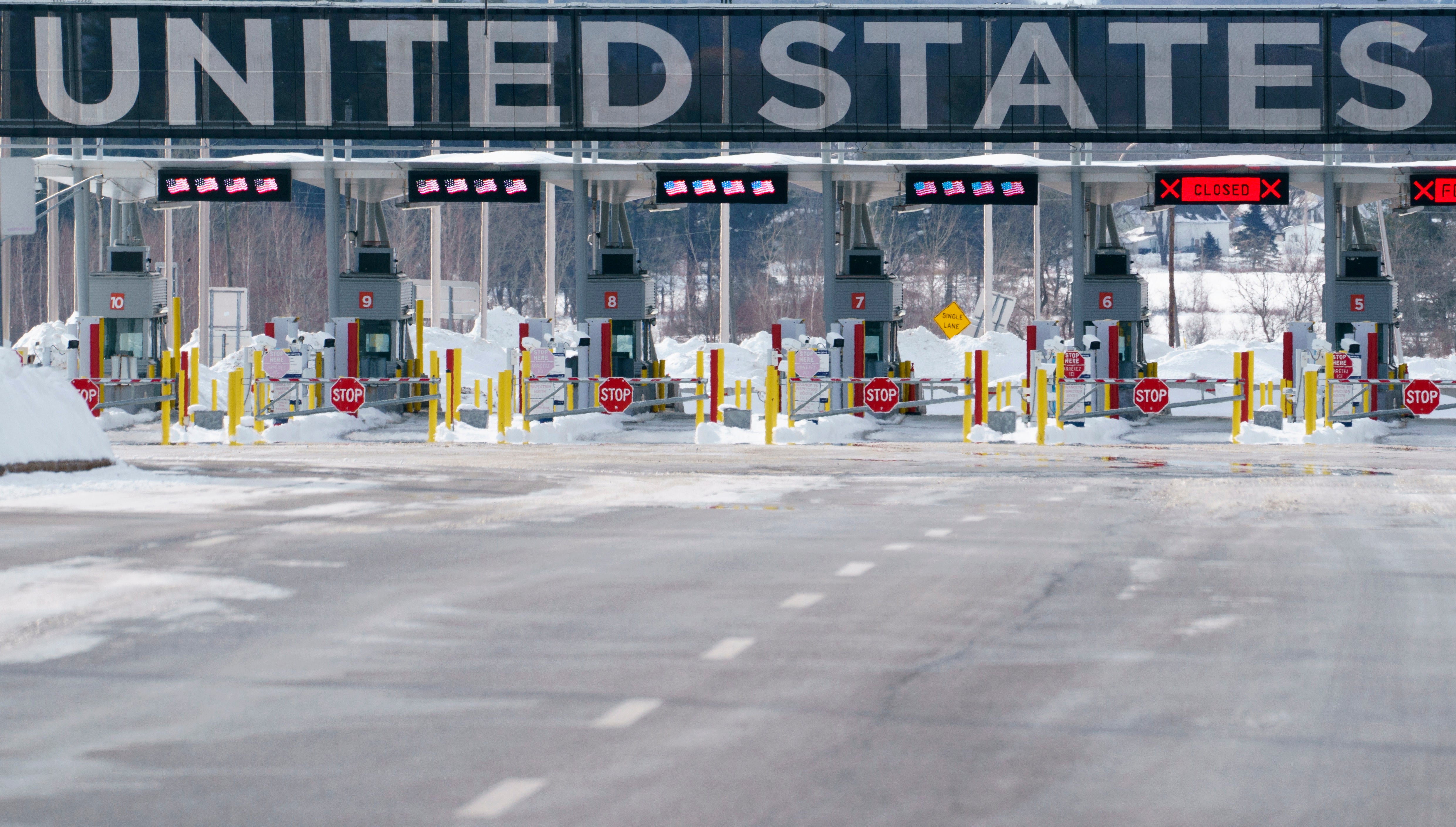Despite Canadian easing, US extends land border restrictions
The United States government is extending the closure of the land borders with Canada and Mexico until at least Aug. 21

Your support helps us to tell the story
From reproductive rights to climate change to Big Tech, The Independent is on the ground when the story is developing. Whether it's investigating the financials of Elon Musk's pro-Trump PAC or producing our latest documentary, 'The A Word', which shines a light on the American women fighting for reproductive rights, we know how important it is to parse out the facts from the messaging.
At such a critical moment in US history, we need reporters on the ground. Your donation allows us to keep sending journalists to speak to both sides of the story.
The Independent is trusted by Americans across the entire political spectrum. And unlike many other quality news outlets, we choose not to lock Americans out of our reporting and analysis with paywalls. We believe quality journalism should be available to everyone, paid for by those who can afford it.
Your support makes all the difference.The U.S. government on Wednesday extended the closure of the land borders with Canada and Mexico to non-essential travelers until at least Aug. 21.
The announcement by the Department of Homeland Security came two days after the Canadian government announced it would begin letting fully vaccinated U.S. citizens into Canada on Aug. 9, and those from the rest of the world on Sept. 7.
It’s unclear how, or if, the U.S. decision will affect the Canadian decision.
People in both the U.S. and Canada have been pushing for the reopening of the border to resume the flow of visitors and tourist dollars between the two countries.
The U.S. announcement notes that increasing vaccination levels in the United States and Canada have increased and the U.S. Centers for Disease Control and Prevention lowered the COVID-19 risk level in the two countries from “very high” to "high."'
“Given the outbreak and continued transmission and spread of COVID-19 within the United States and globally, the Secretary (of Homeland Security Alejandro Mayorkas) has determined that the risk of continued transmission and spread of the virus associated with COVID-19 between the United States and Canada poses an ongoing ‘specific threat to human life or national interests,'" the announcement said.
The decision drew immediate criticism from politicians from U.S border states.
New Hampshire Gov. Chris Sununu a Republican, on Wednesday called the U.S. decision to extend the border closure “absurd.”
“It harms our small businesses and families, and does not follow the science,” he said in a statement. “Canada has announced they will open their borders to fully vaccinated Americans, and it’s time the United States follows suit."
The Maine congressional delegation — two Democratic members of Congress and a Republican and independent senator — sent Mayorkas a letter urging him to allow fully vaccinated Canadians into the U.S.
“This continued border closure has a negative impact on our local economies and families, which is why we urge you to develop an immediate plan to allow vaccinated Canadians to resume travel to United States,” the four said in the letter.
North Dakota Republican Gov. Doug Burgum said Wednesday the border restrictions “have now crossed the line from precautionary to preposterous.”
“Keeping the border closed to travelers won’t substantially drive vaccination rates up, but it will continue to hold the economy down and hurt communities that depend on cross-border activity, including North Dakota’s retail and tourism industries," Burgum said in a statement.
At the beginning of the pandemic in March 2020, both the U.S. and Canadian governments restricted non-essential travel by land between the two countries on the more than 5,500-mile (8,800-kilometer) border, although Canadians have been able to fly into the United States with a negative COVID-19 test. Until the Canadian decision on Monday, the two governments extended the closure every month.
Homeland Security posted a separate announcement Monday restricting entry on the Mexican border. On the southern border U.S. citizens and legal permanent residents have been going back and forth with ease.
Cross-border trade between the United States and Canada has not been affected by the closure.
The U.S. Travel Association estimates that each month the border is closed costs $1.5 billion. Canadian officials say Canada had about 22 million foreign visitors in 2019 — about 15 million of them from the United States.